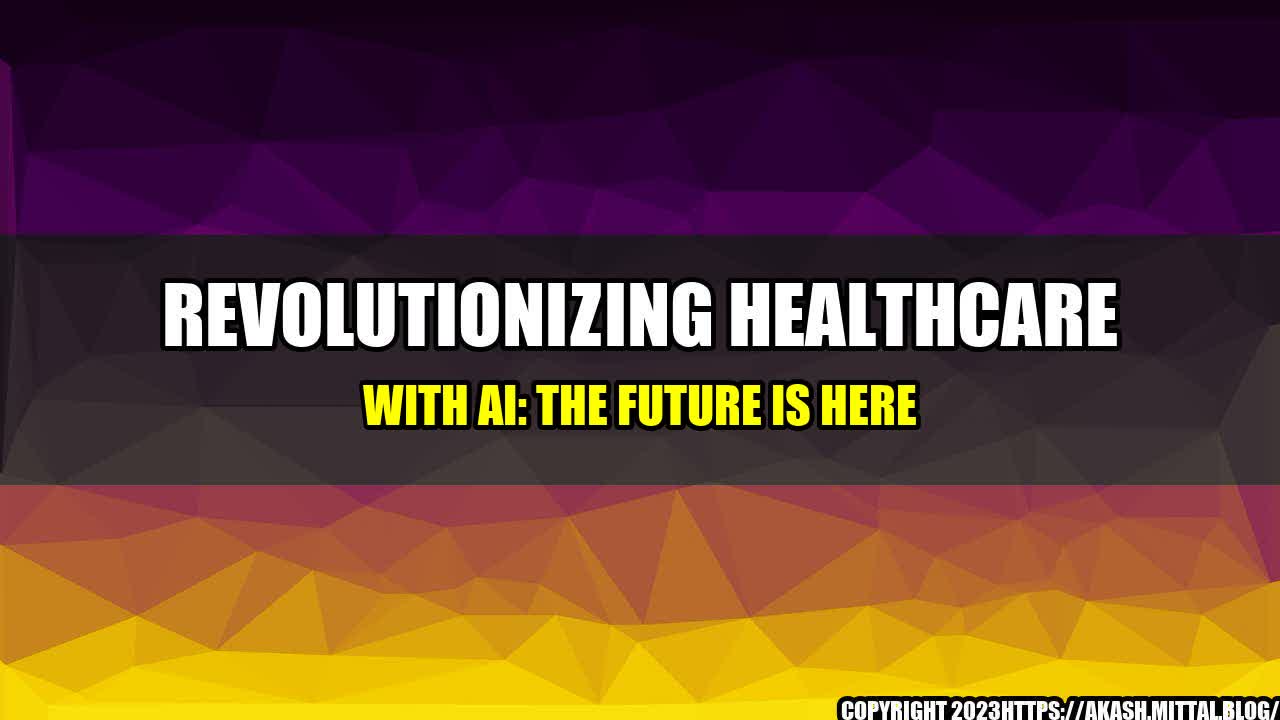
It was just another day at work for Dr. Patel, a physician at a hospital in Mumbai, India. Little did he know that an AI-powered tool would soon come to his rescue and save a patient's life.
Mr. Singh, a 67-year-old man with a history of heart disease, was rushed to the hospital with chest pain. Despite receiving the best medical attention, his condition was deteriorating rapidly. The doctors were running out of options, and Mr. Singh's family was losing hope. That's when Dr. Patel decided to use an AI-powered diagnostic tool to analyze Mr. Singh's medical records, along with data from thousands of similar patients. The tool quickly identified a rare but potentially deadly complication, which had been missed by the doctors.
Dr. Patel immediately changed Mr. Singh's treatment plan, and within hours his condition began to improve. Today, Mr. Singh is healthy and grateful to be alive, thanks to the power of AI in healthcare.
This is just one of many examples of how AI is revolutionizing the way we approach healthcare. From early diagnosis to personalized treatment, AI has the potential to transform every aspect of healthcare. Let's explore some quantifiable examples of how AI is already making an impact:
1. Early Diagnosis: One of the biggest challenges in healthcare is early diagnosis of diseases. The earlier a disease is detected, the better the chances of successful treatment. According to a report by Deloitte, AI-powered diagnostic tools can achieve an accuracy rate of up to 99%, compared to 70% accuracy achieved by traditional methods. This can lead to faster diagnosis, reduced healthcare costs, and better outcomes for patients.
2. Personalized Treatment: Every patient is unique, and their response to treatment can vary greatly. AI can help doctors personalize treatment plans based on each patient's individual characteristics, such as their genetic makeup, lifestyle, and medical history. This can lead to better outcomes and fewer side effects. For example, a study published in Nature showed that an AI algorithm was able to identify the most effective drug treatment for 73% of patients with major depressive disorder, compared to 38% using traditional methods.
3. Predictive Analytics: Another area where AI is making a big impact is in predictive analytics. By analyzing large datasets of patient records, AI can identify patterns and predict potential health risks. This can help doctors proactively intervene and prevent conditions from developing. For example, a study published in The Lancet Digital Health showed that an AI algorithm was able to predict the risk of developing dementia up to two years in advance, with an accuracy rate of 90%.
In conclusion, AI is transforming healthcare as we know it, and the potential for impact is immense. However, it's important to note that AI is not a substitute for human doctors and healthcare professionals. Rather, it's a tool that can help them make better decisions and provide better outcomes for patients. As AI continues to evolve, the possibilities for healthcare are endless.
References:
- Deloitte: The promise of artificial intelligence in the healthcare industry
- Nature: Impact of AI on Patient Outcomes/Diagnosis
- The Lancet Digital Health: Prediction of dementia onset using machine learning algorithms
Curated by Team Akash.Mittal.Blog
Share on Twitter Share on LinkedIn